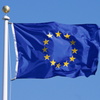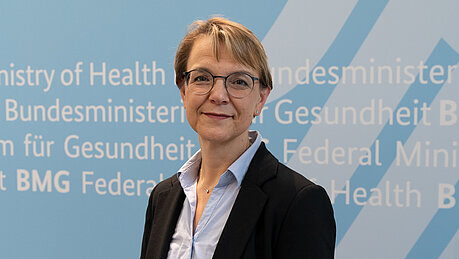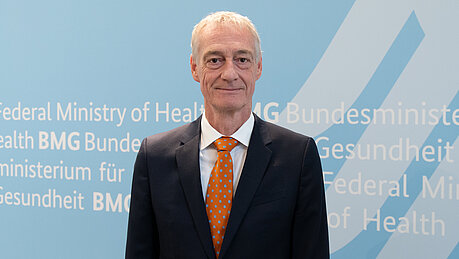"Genomic medicine can save lives"
The genomDE initiative aims at driving genomic medicine forward in Germany, thereby enabling patients to benefit from faster and better care. Network coordinator Sebastian C. Semler of TMF e. V. explains how the initiative intends to achieve this.
© Copyright: Volkmar Otto
Verbundkoordinator Sebastian C. Semler von der TMF e.V.
What is genomic medicine?
Sebastian C. Semler: Genomic medicine is about understanding the interactions between genome and disease as well as genome and therapy, and therefore applying these findings to the patients’ benefit. Specifically, genomic medicine can, for instance, help to diagnose genetic diseases or assess the risk of hereditary cancer. It also plays an increasingly important role in identifying treatment. Thanks to genomic medicine, doctors can determine personalised treatments for patients and thereby avoid side effects of sometimes ineffective treatments.
Where does genomic medicine currently stand in Germany?
Luckily, in Germany we have a lot of expertise and the health care provided by the designated centres of competence is good. One has to remember that an individual doctor working at a surgery sees a specific case far too rarely to be able to derive treatment options. By linking data from specialised centres across Germany, it opens up completely new possibilities for genomic medicine. This could even save lives. With respect to the infrastructures, however, we still have some catching up to do. With the genomDE initiative, we wish to expand these structures even further – by applying and linking established care and research infrastructures as well as involving patient representation groups as equal partners.
What are the specific aims of the still fairly new genomDE initiative?
With genetic analyses, we wish to contribute to accelerate and improve diagnoses and treatments, for instance through fewer side effects. According to its call for funding, initially the focus will be on cancer and the so-called rare diseases, additional indication areas should be added further down the line. A genome sequence taken on its own does not reveal much. But when it is combined with the patient history – i.e. diagnoses, diseases, treatments previously applied, etc. – then the genetic analysis may yield information. The genomDE initiative thus moves in two worlds: On the one hand it concerns the inclusion into the care process, on the other hand the research of the whole genome. We are glad that we have the relevant players in the consortium, both on the research and on the care side. In this way, we will hopefully succeed in forming an umbrella and a common infrastructure. A secure and systematic organisation of genomic data is a crucial component in this respect. We need to move away from working side by side to working together.
Genomic data are highly sensitive. How does the initiative intend to protect these as far as possible?
A requirement for our work is, that access can only take place securely and in a privacy-compliant manner. In order to do that, we are in exchange with the data protection authorities of all the Federal Länder and the Federal Government. Our aim is to store the data in a coded form, so that it is not possible to directly trace information back to the individual. This is known as data pseudonymisation. However, for patients to also actually benefit from the genomic analysis findings, incorporating a further security step ensures that it remains possible to trace information back to a specific person where necessary. In practice, this will mean that researchers will have access to a user data set, but only an independent trust agency under sovereign administration will be able to trace the information back to the individual.
Genomic medicine hinges on the patients’ acceptance. How do you intend to involve them and get them on board?
First of all, it is important to know that the process requires consent, meaning that patients are fully informed and can then decide whether they wish to proceed with the analysis of their whole genome or not. We are pleased that the self-aid groups for rare diseases and oncology are members of the genomDE initiative and thereby actively bring in the patient perspective. Furthermore, we plan to provide the public with extensive information. We want to raise greater awareness about the opportunities provided by genomic analysis and explain how sensitive data can be protected.
What do you hope the genomDE initiative will bring?
The genomDE initiative aims to contribute towards improving the diagnosis, treatment and prevention of diseases. In the long run, it should be possible to provide as many patients as possible with better access to the clinical applications of genomic sequencing. This also requires a reasonable integration of genomDE into the overall digitalised health data infrastructure of tomorrow. We will have achieved a great deal, if we succeed in making whole genome sequencing linked to clinical data available in a quality-assured and protected manner throughout Germany. It does represent a great challenge.




























